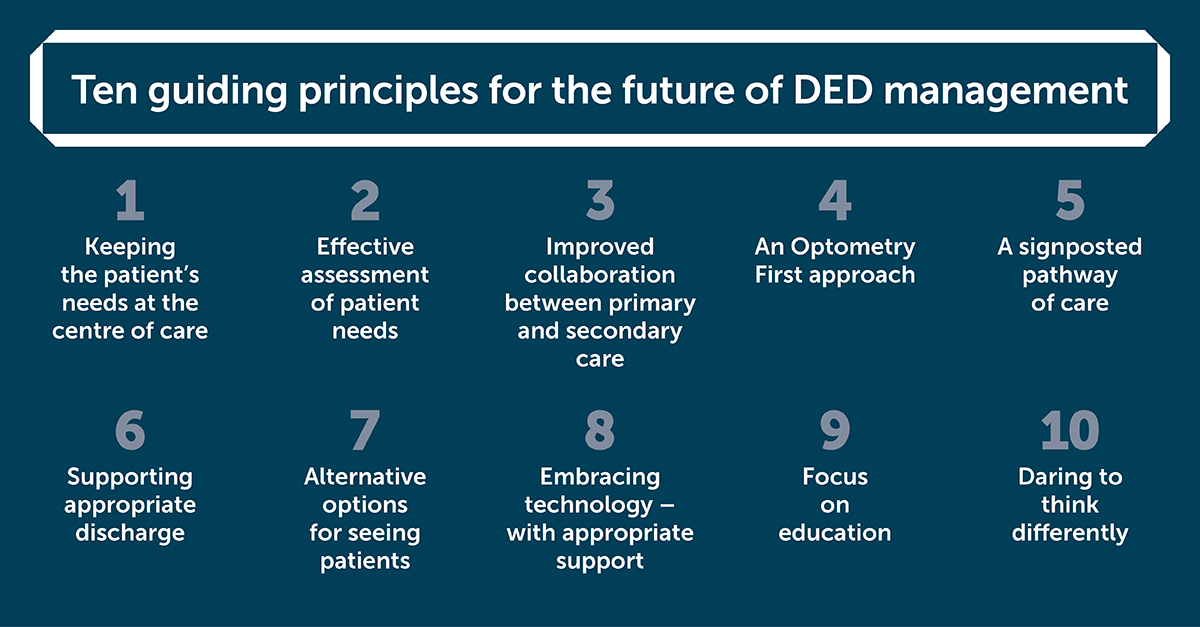Being Proud: Daring to think differently - ten guiding principles for the care of dry eye disease patients
In the third article in our series – Being Proud: Projects that Make a Difference in Eye Care - Sam Little, Marketing Manager, talks about the launch of a report into the impact of COVID-19 on DED services.
Daring to think differently can be daunting but, as our report DED services in the era of COVID-19 makes clear, it is key to improving the care of dry eye disease.
One of the many legacies of Covid is that it encouraged people to think differently. During the pandemic, when only those with the most serious eye conditions were able to access secondary care, patients with dry eye disease tended to be triaged out of the system.
But dry eye disease can have a huge impact on personal wellbeing and quality of life and, with a large number of these patients struggling, ophthalmology, a service that was stretched anyway, had to come up new ways of providing support, whether that was in hospitals, GPs’ surgeries or high street opticians. And, by daring to think differently, individual centres started to do different things to make things work a bit better.
Here at Santen, we saw what was happening and thought there was an opportunity draw the ideas together and share those that could be carried forward post-pandemic to help streamline services.
We didn’t do this alone. DED services in the era of Covid-19 was developed and driven forward by ten health professionals who are at the heart of ophthalmology services across the UK. These ophthalmic surgeons, ophthalmologists and optometrists have a broad spectrum of experience and are from a broad range of different centres.
They had some really interesting and challenging conversations about what works and what doesn’t work and identified five key areas they felt should be looked at, from the impact of Covid to how education can revolutionise DED care.
There was a genuine desire to explore different ways of managing care and get it down on paper and it was really great to see.
What's particularly nice is that, although there's quite a lot of information in the report, the team have managed to succinctly sum it up in ten guiding principles.

Three, in particular, struck a chord with me.
The first is keeping patients’ needs at the centre of care. This includes finding a balance between making care accessible and supporting patients to manage their own eye care. One way of doing this is through patient-initiated follow-ups – giving certain patients a touch point back into secondary care, rather than automatically booking them in for follow-ups that might not be needed.
Focusing on education, another of the ten recommendations, is also really important. There isn’t a huge amount of information for patients on the internet and different hospitals often have different patient materials. I don’t know what the answer is – perhaps some sort of centralised, credible resource.
But the principle that really resonates with me is one that is highlighted by Bernie Chang, the president of the Royal College of Ophthalmologists, in his foreword – daring to think differently.
Covid made people think differently and challenge the status quo and, as Bernie says, that’s crucial in making change happen.
The report isn’t prescriptive but it does contain really practical guidance as to what works and what doesn’t work in different settings. And that guidance is from people who are doing the job now, who are there doing this work every day and are passionate about helping improve the care of dry eye disease.
Most of all, the report is a repository of great ideas that could make a real difference to ophthalmology services and to the patients they treat.
With thanks to the report’s ten authors: Sai Kolli, Andrena McElvanney, Nicholas Dash, Parwez Hossain, Laura Crawley, Michael O’Gallagher, David Lockington, Zoe Richmond, Sajjad Ahmad and Sophie Harper.
Date of Preparation: April 2023 Job Code: NP-SANTEN-UK-0096


